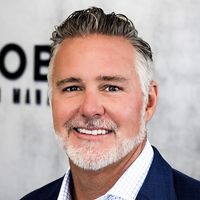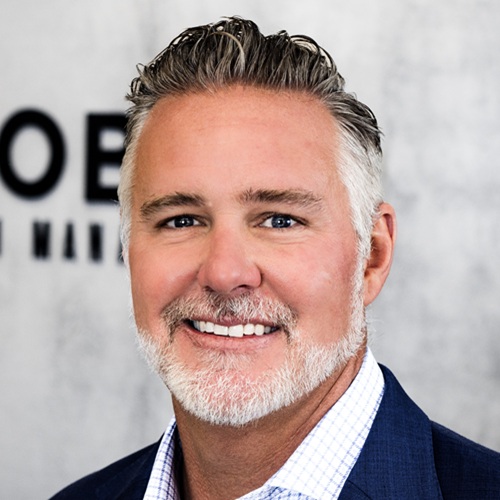5 RMD Strategies to Help Safeguard Your Retirement, Maximize Your Legacy
When managed correctly, required minimum distributions can play an important role in your financial future and those of the ones you love.


Profit and prosper with the best of Kiplinger's advice on investing, taxes, retirement, personal finance and much more. Delivered daily. Enter your email in the box and click Sign Me Up.
You are now subscribed
Your newsletter sign-up was successful
Want to add more newsletters?

Delivered daily
Kiplinger Today
Profit and prosper with the best of Kiplinger's advice on investing, taxes, retirement, personal finance and much more delivered daily. Smart money moves start here.

Sent five days a week
Kiplinger A Step Ahead
Get practical help to make better financial decisions in your everyday life, from spending to savings on top deals.

Delivered daily
Kiplinger Closing Bell
Get today's biggest financial and investing headlines delivered to your inbox every day the U.S. stock market is open.

Sent twice a week
Kiplinger Adviser Intel
Financial pros across the country share best practices and fresh tactics to preserve and grow your wealth.

Delivered weekly
Kiplinger Tax Tips
Trim your federal and state tax bills with practical tax-planning and tax-cutting strategies.

Sent twice a week
Kiplinger Retirement Tips
Your twice-a-week guide to planning and enjoying a financially secure and richly rewarding retirement

Sent bimonthly.
Kiplinger Adviser Angle
Insights for advisers, wealth managers and other financial professionals.

Sent twice a week
Kiplinger Investing Weekly
Your twice-a-week roundup of promising stocks, funds, companies and industries you should consider, ones you should avoid, and why.

Sent weekly for six weeks
Kiplinger Invest for Retirement
Your step-by-step six-part series on how to invest for retirement, from devising a successful strategy to exactly which investments to choose.
In December, the SECURE Act became law and changed the way required minimum distributions (RMDs) from IRAs and other qualified accounts work.
SEE ALSO: 10 Ways the SECURE Act Will Impact Your Retirement Savings
Officially called the Setting Every Community Up for Retirement Enhancement Act of 2019, the SECURE Act shifted the starting age at which people generally must take RMDs from 70½ to 72 years old. (For those who turned 70½ during or before 2019, the former rule still applies.)
Baby Boomers hold 54% of all U.S. household wealth and account for almost 50% of consumer spending — and yet many were winging it as they moved into retirement. Experts have urged them to get it together regarding financial planning.
From just $107.88 $24.99 for Kiplinger Personal Finance
Become a smarter, better informed investor. Subscribe from just $107.88 $24.99, plus get up to 4 Special Issues

Sign up for Kiplinger’s Free Newsletters
Profit and prosper with the best of expert advice on investing, taxes, retirement, personal finance and more - straight to your e-mail.
Profit and prosper with the best of expert advice - straight to your e-mail.
Some listen, some don’t. An average of 10,000 people turn 65 every day in the U.S., and despite all the warnings, many are moving on unprepared.
Just as a lack of overall planning can affect your portfolio and your future, a seat-of-the-pants approach to your RMDs could end up costing you money in penalties, taxes and loss of income. But there are strategies that can help you preserve your hard-earned savings. Here are a few:
1. Educate yourself.
A lot of the people we sit down with don’t seem to understand how RMDs work — how to calculate them, when to take them or the best way to take them. At 72 (or 70½ if you turned 70½ before Jan. 1, 2020), you must start taking your RMD. (For more specifics on the timing, see RMDs: When Do I Have to Take One?) You’ll start out at about 3.65%, and that percentage goes up every year. At 80, it’s 5.35%. At 90, it’s 8.77%. So you have to plan accordingly.
There are a few exceptions. For example, if you’re still working past the age of 72 and you have a retirement plan with that employer, you don’t have to take the RMD on that account until you actually retire. But if you have other accounts, you must take it on those.
2. Don’t wait until November or December to take your RMD.
Just as many people put off doing their taxes until April, most delay taking their RMDs until the end of the year. The problem with that is if the stock market is down in November or December, you’ll end up having to sell investments in a down market, and that can hurt you over time. A better way is to take the RMD over the course of the year using dividends and interest. If, for instance, you have an account that’s paying 4%, you can use that rather than relying on the market to go up.
Obviously, when you’re 95, it’s going to be difficult to cover an 11.63% RMD with dividends and interest. But in the earlier years, you should be able to make it work.
3. Consider purchasing a retirement annuity with an income benefit rider to help protect against longevity.
Let’s face it: Uncle Sam is determined to get the tax money you never paid because you had an IRA. The longer you live, the harder he tries, using those increasing RMD percentages. If your money is only in stocks or a mutual fund, you could end up draining that down to zero when you may need it most. Welcome to 95; you’re broke. But if you purchase a retirement income annuity inside your IRA, you’ll still have that money coming in every single year.
4. Purchase a universal life insurance policy to help maximize your legacy.
What if you don’t need your RMD to live your life? Some people are fortunate; having to withdraw that RMD money is actually a burden to them. They don’t want to have to take it out and pay more taxes. You can’t avoid taxes on your RMD, but you can direct that RMD to purchase a universal life insurance policy to maximize your legacy. So even if you’re drawing down your IRA over time, you can redirect the money and build it back up with a life insurance policy. Ultimately, you can convert a taxable account into a tax-free benefit.
See Also: Pros, Cons and Possible Disasters after SECURE Act
Another strategy is to use a qualified longevity annuity contract (QLAC) to help minimize your RMD exposure. In 2020, you can set aside up to $135,000 or 25% of your IRA value, whichever is smaller, and you don’t have to take the RMD from that amount until you reach 85. It’s a good way to defer the taxes on that money if you don’t need it, and it can help provide an income stream when you’re older and may need it for long-term care or other expenses.
5. Make sure to work with a financial planner who is well-versed in retirement income planning to put together a tangible plan.
Here’s where a lot of people fail. Perhaps you’re still using the adviser you chose when you were in the accumulation phase of life. But in retirement, you need someone who can help you figure out the best way to take your income and help maximize your accounts annually. Calculating your RMD each year is a complicated matter, especially if you have several retirement accounts. A retirement professional you trust can take you through it and make things a little less painful for you and your pocketbook.
See Also: How to Downsize Your RMDs
Kim Franke-Folstad contributed to this article.
This material is for informational purposes only. It is not intended to provide tax, accounting or legal advice or to serve as the basis for any financial decisions. Individuals are advised to consult with their own accountant and/or attorney regarding all tax, accounting and legal matters.
Securities offered only by duly registered individuals through Madison Avenue Securities, LLC (MAS), member FINRA/SIPC. Advisory services offered only by duly registered individuals through Global Wealth Management Investment Advisory (GWM), a Registered Investment Advisor. MAS and GWM are not affiliated entities. Investing involves risk, including the potential loss of principal. Any references to protection benefits, safety or lifetime income generally refer to fixed insurance products, never securities or investment products. Insurance and annuity product guarantees are backed by the financial strength and claims-paying ability of the issuing insurance company. Neither the firm nor its agents or representatives may give tax advice. Individuals should consult with a qualified professional for guidance before making any purchasing decisions.
The appearances in Kiplinger were obtained through a PR program. The columnist received assistance from a public relations firm in preparing this piece for submission to Kiplinger.com. Kiplinger was not compensated in any way.
Profit and prosper with the best of Kiplinger's advice on investing, taxes, retirement, personal finance and much more. Delivered daily. Enter your email in the box and click Sign Me Up.

Grant Conness is Managing Director and Co-Founder of Global Wealth Management, recognized as the No. 1 financial advisory firm in Southeast Florida by USA TODAY's 2025 Best Financial Advisory Firms list.* With more than 20 years of experience, Grant focuses on helping clients navigate the critical five years before and after retirement through the firm's proprietary Retirement Roadmap Review process. Grant is co-host of Retire Now South Florida on NBC, CBS, ABC and FOX, and he has been quoted in The Wall Street Journal.** He is also co-author of Charting Your Financial Course.
-
 Quiz: Do You Know How to Avoid the "Medigap Trap?"
Quiz: Do You Know How to Avoid the "Medigap Trap?"Quiz Test your basic knowledge of the "Medigap Trap" in our quick quiz.
-
 5 Top Tax-Efficient Mutual Funds for Smarter Investing
5 Top Tax-Efficient Mutual Funds for Smarter InvestingMutual funds are many things, but "tax-friendly" usually isn't one of them. These are the exceptions.
-
 AI Sparks Existential Crisis for Software Stocks
AI Sparks Existential Crisis for Software StocksThe Kiplinger Letter Fears that SaaS subscription software could be rendered obsolete by artificial intelligence make investors jittery.
-
 Social Security Break-Even Math Is Helpful, But Don't Let It Dictate When You'll File
Social Security Break-Even Math Is Helpful, But Don't Let It Dictate When You'll FileYour Social Security break-even age tells you how long you'd need to live for delaying to pay off, but shouldn't be the sole basis for deciding when to claim.
-
 I'm an Opportunity Zone Pro: This Is How to Deliver Roth-Like Tax-Free Growth (Without Contribution Limits)
I'm an Opportunity Zone Pro: This Is How to Deliver Roth-Like Tax-Free Growth (Without Contribution Limits)Investors who combine Roth IRAs, the gold standard of tax-free savings, with qualified opportunity funds could enjoy decades of tax-free growth.
-
 One of the Most Powerful Wealth-Building Moves a Woman Can Make: A Midcareer Pivot
One of the Most Powerful Wealth-Building Moves a Woman Can Make: A Midcareer PivotIf it feels like you can't sustain what you're doing for the next 20 years, it's time for an honest look at what's draining you and what energizes you.
-
 I'm a Wealth Adviser Obsessed With Mahjong: Here Are 8 Ways It Can Teach Us How to Manage Our Money
I'm a Wealth Adviser Obsessed With Mahjong: Here Are 8 Ways It Can Teach Us How to Manage Our MoneyThis increasingly popular Chinese game can teach us not only how to help manage our money but also how important it is to connect with other people.
-
 Looking for a Financial Book That Won't Put Your Young Adult to Sleep? This One Makes 'Cents'
Looking for a Financial Book That Won't Put Your Young Adult to Sleep? This One Makes 'Cents'"Wealth Your Way" by Cosmo DeStefano offers a highly accessible guide for young adults and their parents on building wealth through simple, consistent habits.
-
 Global Uncertainty Has Investors Running Scared: This Is How Advisers Can Reassure Them
Global Uncertainty Has Investors Running Scared: This Is How Advisers Can Reassure ThemHow can advisers reassure clients nervous about their plans in an increasingly complex and rapidly changing world? This conversational framework provides the key.
-
 I'm a Real Estate Investing Pro: This Is How to Use 1031 Exchanges to Scale Up Your Real Estate Empire
I'm a Real Estate Investing Pro: This Is How to Use 1031 Exchanges to Scale Up Your Real Estate EmpireSmall rental properties can be excellent investments, but you can use 1031 exchanges to transition to commercial real estate for bigger wealth-building.
-
 Should You Jump on the Roth Conversion Bandwagon? A Financial Adviser Weighs In
Should You Jump on the Roth Conversion Bandwagon? A Financial Adviser Weighs InRoth conversions are all the rage, but what works well for one household can cause financial strain for another. This is what you should consider before moving ahead.